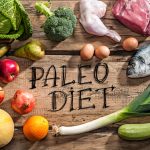Protein is an essential macronutrient that plays a crucial role in the body’s growth, repair, and overall function. It is the building block of muscles, skin, enzymes, and hormones, making it vital for maintaining good health. Despite its importance, there is considerable debate about how much protein individuals should consume daily. This article explores the factors influencing protein needs, the recommended dietary allowances, and how to adjust protein intake based on lifestyle and health goals.
What is Protein and Why is it Important?
Protein is made up of amino acids, which are the body’s building blocks. There are 20 different amino acids, nine of which are essential, meaning the body cannot produce them, and they must be obtained through diet. Protein serves several key functions:
- Muscle Repair and Growth: Protein is critical for repairing and building muscle tissue, making it essential for athletes and physically active individuals.
- Enzyme and Hormone Production: Proteins are involved in producing enzymes and hormones that regulate various bodily functions.
- Immune Function: Proteins play a role in creating antibodies that help fight infections.
- Cell Structure and Function: Proteins provide structural support for cells and tissues.
- Energy Source: While not the primary energy source, protein can be used for energy if carbohydrate and fat intake is insufficient.
Recommended Dietary Allowance (RDA) for Protein
The Recommended Dietary Allowance (RDA) for protein is the minimum amount needed to meet the nutritional requirements of nearly all (97-98%) healthy individuals. According to the National Academy of Medicine, the RDA for protein is:
- 0.8 grams per kilogram of body weight per day (g/kg/day)
- This translates to about 56 grams per day for the average sedentary man and 46 grams per day for the average sedentary woman.
However, the RDA is designed to prevent deficiency, not necessarily to optimize health and performance. Many individuals, especially those with higher activity levels or specific health goals, may benefit from higher protein intakes.
Factors Influencing Protein Needs
- Age: Protein needs change throughout life. Older adults may require more protein to maintain muscle mass and strength, while children and adolescents need more for growth and development.
- Activity Level: Athletes and those engaged in regular physical activity require more protein to support muscle repair and recovery.
- Body Composition Goals: Individuals aiming to build muscle or lose weight may benefit from higher protein intakes to support muscle growth and preserve lean body mass during weight loss.
- Health Conditions: Certain medical conditions, such as injuries, surgeries, or chronic illnesses, can increase protein requirements to support healing and recovery.
- Pregnancy and Lactation: Pregnant and breastfeeding women need additional protein to support fetal growth and milk production.
Optimal Protein Intake for Different Lifestyles
- Sedentary Adults: For individuals with minimal physical activity, the RDA of 0.8 g/kg/day is typically sufficient. However, some experts recommend slightly higher intakes of 1.0-1.2 g/kg/day for overall health maintenance.
- Active Individuals and Recreational Athletes: Those who engage in moderate exercise (3-5 days a week) may benefit from 1.2-2.0 g/kg/day to support muscle recovery and performance.
- Strength Athletes and Bodybuilders: Individuals involved in intense strength training or bodybuilding may require 1.6-2.2 g/kg/day to optimize muscle growth and repair.
- Endurance Athletes: Long-distance runners, cyclists, and swimmers may need 1.2-1.6 g/kg/day to support energy demands and muscle recovery.
- Older Adults: To prevent muscle loss (sarcopenia) and maintain strength, older adults are advised to consume 1.2-1.5 g/kg/day.
- Weight Loss and Fat Loss: Higher protein intake can help preserve muscle mass during calorie restriction. 1.6-2.4 g/kg/day is often recommended for those aiming to lose weight while maintaining lean body mass.
How to Calculate Your Protein Needs
To determine your protein requirements:
- Convert Your Weight to Kilograms: Divide your weight in pounds by 2.2.
- Multiply by the Appropriate Factor: Use the guidelines above to select the correct protein factor based on your activity level and goals.
Example:
- A 150-pound sedentary woman: 150 ÷ 2.2 = 68 kg. 68 kg x 0.8 g = 54 grams of protein per day.
- A 180-pound strength athlete: 180 ÷ 2.2 = 82 kg. 82 kg x 2.0 g = 164 grams of protein per day.
Sources of Protein
Protein can be obtained from a variety of animal and plant-based sources:
- Animal-Based Sources:
- Meat: Chicken, beef, pork, lamb, turkey
- Fish and Seafood: Salmon, tuna, shrimp, cod
- Dairy: Milk, yogurt, cheese
- Eggs: Whole eggs and egg whites
- Plant-Based Sources:
- Legumes: Lentils, chickpeas, black beans, peas
- Nuts and Seeds: Almonds, peanuts, chia seeds, flaxseeds
- Whole Grains: Quinoa, brown rice, oats
- Soy Products: Tofu, tempeh, edamame
- Protein Supplements:
- Whey Protein: Fast-digesting, complete protein from milk
- Casein Protein: Slow-digesting, complete protein from milk
- Plant-Based Protein Powders: Pea, hemp, rice, and soy protein powders
Purium Protein Options:
Signs of Inadequate Protein Intake
Not consuming enough protein can lead to various health issues, including:
- Muscle Loss and Weakness: Reduced muscle mass and strength.
- Fatigue and Weakness: Lack of energy and overall tiredness.
- Poor Immune Function: Increased susceptibility to infections.
- Slow Wound Healing: Delayed recovery from injuries and surgeries.
- Hair, Skin, and Nail Problems: Brittle nails, hair thinning, and skin issues.
Risks of Excessive Protein Intake
While high-protein diets are generally safe for most people, excessive intake over prolonged periods may pose risks, particularly for individuals with preexisting health conditions:
- Kidney Strain: High protein intake can strain kidneys, particularly in people with existing kidney disease.
- Dehydration: Protein metabolism requires more water, increasing the risk of dehydration if fluid intake is inadequate.
- Nutrient Imbalance: Excessive protein can displace other essential nutrients, leading to imbalances.
- Digestive Issues: High protein diets may cause digestive discomfort, such as constipation or diarrhea, especially if fiber intake is low.
Balancing Protein with Other Nutrients
While protein is vital, it’s essential to maintain a balanced diet that includes carbohydrates and fats. Carbohydrates provide the primary energy source, while healthy fats support hormone production and nutrient absorption. Aim for a well-rounded diet that includes a variety of whole foods to meet all your nutritional needs.
Conclusion
Protein is an essential nutrient that plays a critical role in maintaining overall health, supporting muscle growth, and aiding in recovery. While the RDA provides a baseline for preventing deficiency, individual protein needs vary based on factors such as age, activity level, and health goals. By understanding your unique requirements and incorporating a variety of protein sources into your diet, you can optimize your health and performance. Always consult with a healthcare professional or registered dietitian if you have specific dietary concerns or health conditions that may affect your protein needs.
Sources:
https://atriumhealth.org/dailydose/2024/02/22/a-building-block-for-good-health-the-benefits-of-protein
https://www.uclahealth.org/news/article/are-you-getting-enough-protein-heres-what-happens-if-you-dont
https://www.health.harvard.edu/blog/how-much-protein-do-you-need-every-day-201506188096









